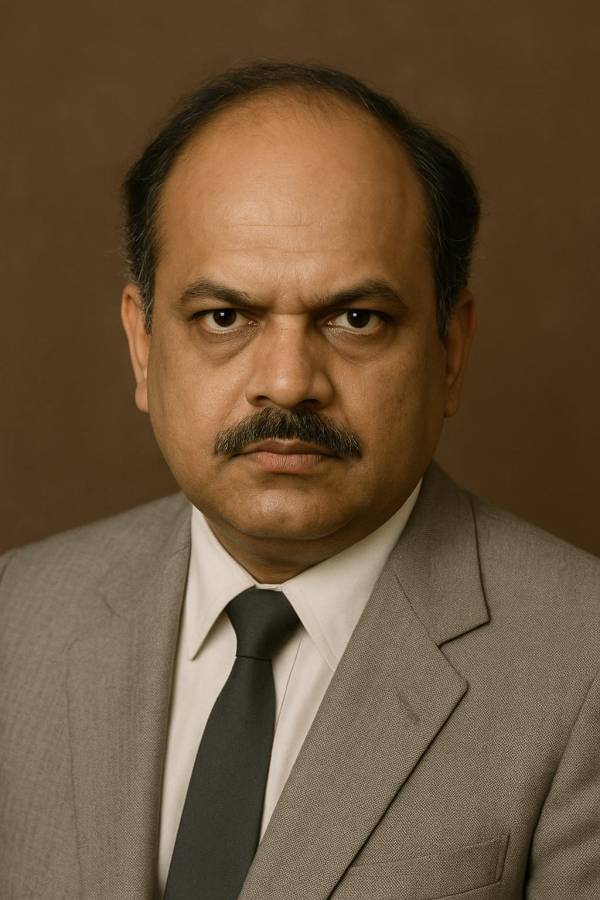
India’s scientific landscape has been shaped by numerous brilliant minds who devoted their lives to the pursuit of knowledge and innovation. Among them, the name of Prof. Jayant Vishnu Narlikar shines as a beacon of inspiration. A visionary astrophysicist, a dedicated science communicator, and among India’s foremost scientific thinkers, Prof. Narlikar played a key role in establishing modern cosmology in India and nurturing a culture of scientific curiosity among generations of students and researchers. His remarkable life’s work was recently honored posthumously when the Government of India announced that he would receive the Vigyan Ratna Puraskar, the country’s highest science award, recognizing his lifelong contributions to science and technology.
Born in 1938, Jayant Vishnu Narlikar’s brilliance was evident from a young age. He completed his education at Banaras Hindu University and later went to Cambridge University, where he worked under the legendary British astronomer Sir Fred Hoyle. His collaboration with Hoyle led to the development of the Hoyle–Narlikar theory of gravity, which offered an alternative explanation to Einstein’s general theory of relativity. This theory proposed a unique mechanism of gravitational interaction that connected cosmology with quantum physics, establishing Narlikar as one of the pioneers of modern theoretical astrophysics.
However, what truly distinguished Prof. Narlikar was not only his groundbreaking theoretical work but also his commitment to making India self-reliant in high-level scientific research. When he returned to India, he played an instrumental role in founding the Inter-University Centre for Astronomy and Astrophysics (IUCAA) in Pune in 1988. The establishment of IUCAA was a milestone for Indian science — it provided a platform for universities and researchers across the country to collaborate on advanced astrophysical studies. Narlikar envisioned a democratized approach to astronomy and cosmology, ensuring that scientific progress was not limited to a handful of elite institutions but spread widely across the nation’s academic network.
Prof. Narlikar was known for his fearless scientific approach and his readiness to challenge established theories. He questioned the Big Bang theory, which states that the universe originated from a single explosive moment. Instead, he supported the steady-state model of the universe, suggesting that matter is continuously created and that the cosmos has no singular beginning or end. While the Big Bang model eventually gained broader acceptance through observational evidence, Narlikar’s work pushed the boundaries of theoretical discussions, ensuring that Indian voices were heard in global cosmological debates.
Beyond research, Narlikar’s contributions to science communication and education were immense. He believed that science should not remain confined within laboratories but must reach the common people. Through numerous books, columns, and television programs, he sparked curiosity about the cosmos among students and lay audiences alike. Works like The Scientific Edge and Seven Wonders of the Cosmos reflect his ability to simplify complex scientific concepts without losing their essence. His storytelling approach inspired countless young Indians to develop a lifelong love for science.
Prof. Narlikar’s influence extended far beyond academia. As an advisor to various government scientific bodies, he played a vital role in shaping India’s research policies and fostering international collaboration. He was a strong advocate of indigenous scientific development and often emphasized that true progress could only be achieved through innovation rooted in local talent and ideas. His leadership in science popularization through organizations such as Vigyan Prasar, along with his involvement in national science programs, reflected his firm belief that a scientifically literate society is essential for a progressive nation.
Throughout his career, Prof. Narlikar received numerous honors, including the Padma Bhushan (1965) and Padma Vibhushan (2004). The posthumous Vigyan Ratna Puraskar stands as a fitting tribute to his lifelong mission of advancing scientific thought in India and empowering new generations to think critically and independently.
Prof. Narlikar passed away in May 2025 at the age of 86, leaving behind a legacy that continues to inspire generations. His daughter, Leelavati, expressed her family’s pride, saying they were glad his father’s contributions had been recognized and wished he had lived to receive the honor himself.
In conclusion, Prof. Jayant Vishnu Narlikar’s life symbolizes the perfect blend of intellectual excellence, national pride, and a deep commitment to education and scientific outreach. His pioneering cosmological research placed India firmly on the global scientific map, while his efforts to popularize science created a strong foundation for future innovation. Narlikar’s vision reminds us that science is not just a field of study but a way of thinking, questioning, and exploring the universe. His legacy will forever illuminate India’s journey toward becoming a global leader in science and technology.





















